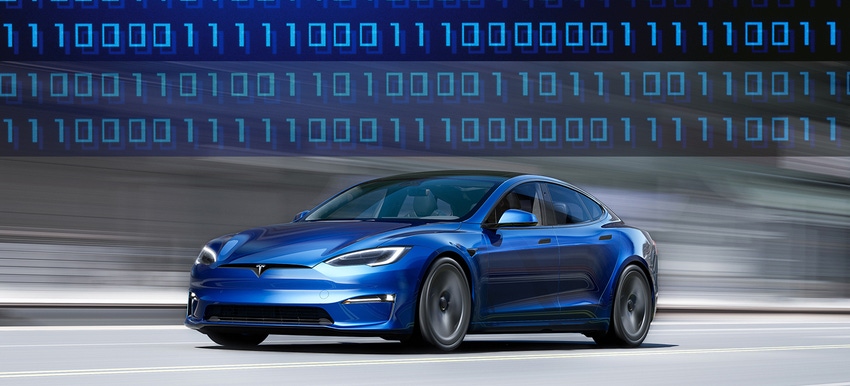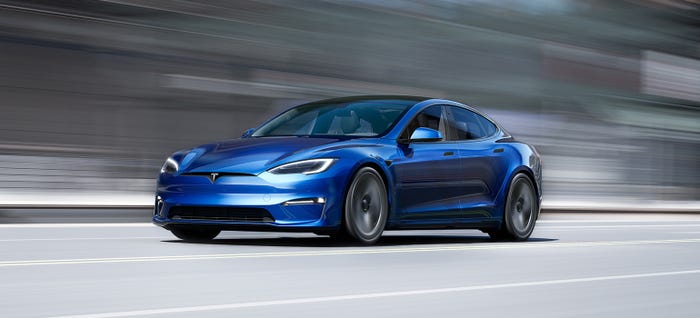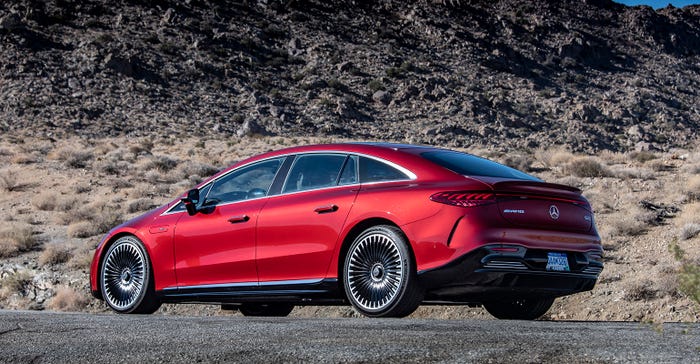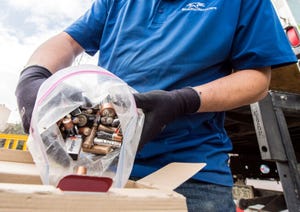Tesla owners sue over battery-killing software updates as Mercedes-Benz recalls 3,800 EVs for potential battery safety issue.

In the modern automotive world, even the best-designed battery and the sturdiest of cars are at the mercy of the software that controls and monitors their functions. Software, upon which so much depends, is both miraculous and vexing, the proverbial ghost in the machine. And when glitches appear, they seem as hard to hunt down and exorcize as any spirit. This week, software issues are haunting the batteries of two car makers.
Last Friday, a number of Tesla owners filed a class-action suit against the company, saying that automatic software updates have depleted their cars’ batteries. And earlier the same week, Mercedes-Benz had to recall more than 3,800 EVs for a fix of the battery warning system’s software.
Tesla owners vs. automated software updates
A group of Tesla Model X and Model S owners filed suit against Tesla Motors in California on Friday, claiming that automatic software updates were shortening the life of the cars’ batteries. According to the Associate Press, the plaintiffs claim the software updates and their effects “violate federal and state laws because they can cut driving range by up to 20% and have forced some owners to replace their batteries at a cost of $15,000.”

The lawsuit argues that the impacted vehicles should count as ‘protected computers under the Computer Fraud and Abuse Act, the AP explains, with the automatic updates being a violation of the plaintiffs’ rights.
The software’s behavior, in this case, isn’t a result of a glitch, the plaintiff’s argument implies: The automatic updating of software, whenever the car is connected to WiFi, is not a bug but a feature. It’s doing what Tesla wants it to do. And that, according to the lawsuit, is the problem.
“When car owners purchase their vehicles, they reasonably expect that unforeseen events—like weather, accidents, or flat tires—may impact the performance of their vehicles and lead to costly repairs,” The Hill quoted the lawsuit as saying. “But no reasonable consumer would expect that the car manufacturer itself, through an automated system, would deliberately and significantly interfere with the car’s performance through software updates that reduce the operating capacity of the vehicles.”
Mercedes-Benz recalls EVs for a battery warning system software fix
In the case of the Mercedes-Benz recall, at issue is an actual coding error in the software—a glitch. Mercedes-Benz USA is recalling more than 3,800 EVs “because the high-voltage battery monitoring system software may not alert the driver of a battery malfunction,” reports USA Today.
Specifically, the error may cause the affected models to be non-compliant with Federal Motor Vehicle Safety Standard number 305, which addresses electrolyte spillage and electrical shock protection.

The autoevolution.com website offers more details, reporting, “The German automaker became aware of a potential deviation from the required specifications in May 2022 during routine testing. [...] Back in March 2023, the Stuttgart-based company identified a warning indicator that might fail to inform the driver of a battery system malfunction. Documents filed with the National Highway Traffic Safety Administration reveal that said issue was fixed in production back in September 2022.”
The BenzInsider website quotes the automaker as stating that it “is not aware of any accidents, injuries, deaths, or property damage related to the battery warning system issue. Nevertheless, the automaker will initiate a recall campaign and will start reaching out to affected owners by June 27.”
The affected cars are certain EQE, EQS, and S-Class hybrids assembled between February 14, 2021, and September 8, 2022.
“Dealers will update the battery management system software, free of charge,” USA Today reported. Owner notification letters are expected to be mailed June 27, 2023. Owners may contact Mercedes-Benz USA customer service at 1-800-367-6372.”
About the Author(s)
You May Also Like




